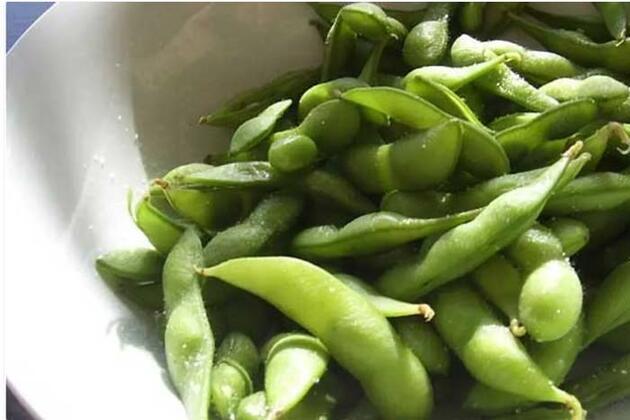Protein Found in Soy Lowers Levels of “Bad” Cholesterol

Soybeans have been known to reduce low-density lipoprotein (LDL) cholesterol – also known as “bad” cholesterol – for some time, but new research from the University of Illinois Urbana-Champaign has identified the specific protein involved in this mechanism and how it works. The study is published in Antioxidants.
Two key proteins
In the new study, Dr. Miguel Rebollo-Hernanz, a postdoctoral researcher, Dr. Elvira de Mejia, professor of food science and Neal A. Bringe, a food scientist from Benson Hill, interrogated the role of two soybean proteins – glycinin and β-conglycinin – in reducing levels of LDL cholesterol.
“Good” vs. “bad” cholesterol
High levels of LDL cholesterol are associated with an increased risk of heart attack and stroke, as it can build up in blood vessel walls, forming plaques. High-density lipoprotein (HDL) cholesterol “mops up” cholesterol from the blood and transports it to the liver, where it is removed from the body, earning it’s nickname of “good” cholesterol.
The researchers took 19 varieties of soybeans with varying proportions of glycinin and β-conglycinin, defatted the beans and ground them to flour. The soy flour then underwent a simulated digestion process and the researchers noted that 13 bioactive peptides were formed – most of which came from the two key proteins.
The digested soybean materials were analyzed to test their inhibitory properties against 3-hydroxy-3-methylglutaryl-CoA reductase (HMGCR), a key protein in cholesterol synthesis and the target of simvastatin, a drug commonly used to treat high LDL cholesterol. Compared to simvastatin, which was used as a control in the study, the soybean digests were two to seven times less potent at inhibiting HMGCR.
The researchers used this information in conjunction with the proportions of glycinin and β-conglycinin within each variety to select five soybean varieties for further analysis.
How do soybean proteins affect our cells?
In the next stage of the experiment, the researcher measured the impact of the soybean digests on cells that had been treated with fatty acids to simulate fatty liver disease. “We measured several parameters associated with cholesterol and lipid metabolism and various other markers – proteins and enzymes – that positively or negatively affect lipid metabolism,” said de Meija.
HMGCR and ANGPTL3
HMGCR is the rate-limiting enzyme in cholesterol synthesis. Angiopoietin-like 3 (ANGPTL3) is secreted by the liver and is a key modulator of lipid metabolism. Both proteins are overexpressed in fatty liver disease, and high levels of circulating ANGPTL3 are associated with liver inflammation and impairment.
After cells were exposed to fatty acids, ANGPTL3 secretion more than tripled and LDL cholesterol absorption reduced by almost a third. The soybean digests were able to reduce ANGPTL3 secretion by 41–81% and increase the uptake of LDL cholesterol into the liver cells by 25–92%, depending on the proportions of glycinin and β-conglycinin in the bean variety.
A higher concentration of β-conglycinin (or a lower glycinin: β-conglycinin ratio) was associated with greater reductions in LDL cholesterol, triglycerides and HMGCR levels in plasma, indicating that β-conglycinin is key to soybean’s reputation of lowering “bad” cholesterol.
“The digested soybeans’ peptides were able to reduce lipid accumulation by 50%-70%, and that’s very important,” de Mejia said. “That was comparable to the statin, which reduced it by 60%. We also clearly saw changes in different markers that were influenced by key enzymes that regulate hepatic lipogenesis – the development of a fatty liver.”
She continued: “Our role as food scientists is to find bioactive compounds that could regulate ANGPTL3 in plasma. It’s easy to measure to prevent hyperlipidemia and atherosclerosis.”
Reference: Rebollo-Hernanz M, Bringe NA, Gonzalez de Mejia E. Selected soybean varieties regulate hepatic LDL-cholesterol homeostasis depending on their glycinin:β-conglycinin ratio. Antioxidants. 2023;12(1). doi: 10.3390/antiox12010020.